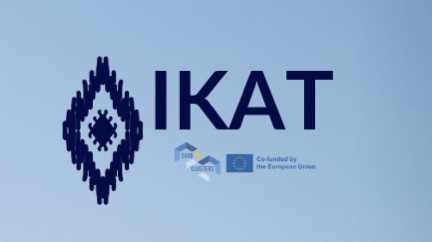Cantabria and the Balearic Islands explore coastal resources for the energy transition
- IKAT PROJECT
- Jul 14, 2023
- 3 min read
Cantabria and the Balearic Islands have analyzed, in a meeting in Palma, the coastal resources of both autonomous communities to promote projects within the plan for the Government's Energy Transition, due to the potential they may have for those territories.
The Vice President and Minister of Energy Transition, Productive Sectors and Democratic Memory, Juan Pedro Yllanes, has announced, at that meeting, that the Balearic Islands have a budget of 30 million euros within the investment plan for the Energy Transition, which will be used to the decarbonization of the sea and promote innovative projects and tractors that contribute to decarbonizing the economy.
At the meeting, which was attended by the maritime clusters of the two autonomous communities, Ocean Renewable Energy and the Balearic Islands University, Yllanes explained that his Government is "clear that not only is the commitment to photovoltaic energy enough for us, but that, just as with the economy it is important to bet on diversification, it is also important for our energy model. "At this point our commitment to marine energies such as wind and wave energy enters the scene," he pointed out.
Yllanes has assured that the ports of the Balearic Islands also have great potential, and that he sees how pioneering projects arise in some places aimed at generating energy through waves or wind.
In this sense, he has valued the projects promoted by the Maritime Cluster together with research groups from the University and Ocean Renewable Energy.
«They represent an opportunity for these emerging research groups related to the energy transition of the Islands. Energies that will help us complete the energy transition roadmap that we are promoting, thus incorporating new photovoltaic technologies that do not see their production interrupted by the available hours of sunshine. An ideal complement to explore and promote in these regions where we have these coastal resources, as is Cantabria as well”, he explained.
The seminar was also attended by the General Director of Energy Transition and Climate Change, Pep Malagrava; the General Director of Industry, Energy and Mines of the Government of Cantabria, Daniel Alvear; the president of the Maritime Cluster of the Balearic Islands, Iolanda Piedra; the president of the Maritime Cluster of Cantabria, Juan Luis Sánchez; the CEO of Renewable Ocean Energy, Antonio Cañellas, and Jaume Carot, rector of the Universitat de les Illes Balears.
Malagrava explained that “the Balearic Islands must lead the projection of marine renewables, and projects such as the renewable energy project in ports promoted by the Maritime Cluster of the Islands is a model to follow to decarbonise one of the highest emission points such as ports.
In addition, this energy may reduce the emissions of ships that dock and stop having their fossil engines running to be able to plug in the port and consume 100% renewable energy.
The General Director of Industry, Energy and Mines of the Government of Cantabria has asserted that "in terms of marine renewables, Cantabria has an outstanding track record."
Alvear has valued the technological capacity of Cantabrian companies and clusters linked to marine renewables and the maritime sector.
In addition, in the field of clean marine energy, Alvear has put on the table the history of collaboration between Cantabria and other autonomous communities of Green Spain, through the Atlantic Wind Supercluster”.
“Some estimates suggest that approximately 40% of total CO2 emissions are attributed to the energy sector and, according to data from Red Eléctrica Española, last year the Spanish energy sector emitted the equivalent of 54.1 million tons of CO2”, Iolana Piedra has shaded.
Juan Luis Sánchez, president of the Maritime Cluster of Cantabria - MarCA, has assured that Cantabria "is also taking a path that is firmly committed to innovative renewable energies" and has highlighted the firm commitment of the maritime sector of the Cantabrian community with decarbonization through of the use of alternative energies, giving as an example the renewable energy project through green hydrogen and ammonia, Green Hydrogen Cantabria”.
"Wave energy is an opportunity to add capabilities to our community to achieve sustainability goals," said Sánchez.
The initiative is part of the bank of projects promoted by the Maritime and Logistics Cluster of the Balearic Islands, to give a real response to the political recommendations included in its Bluefasma initiative and recently presented to the European Commission.




